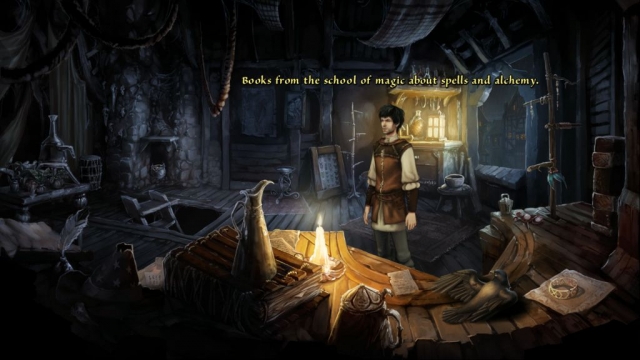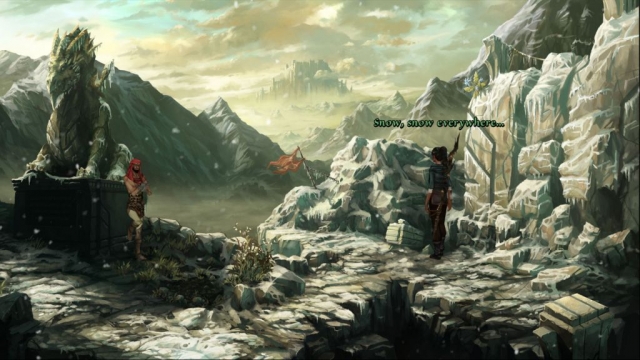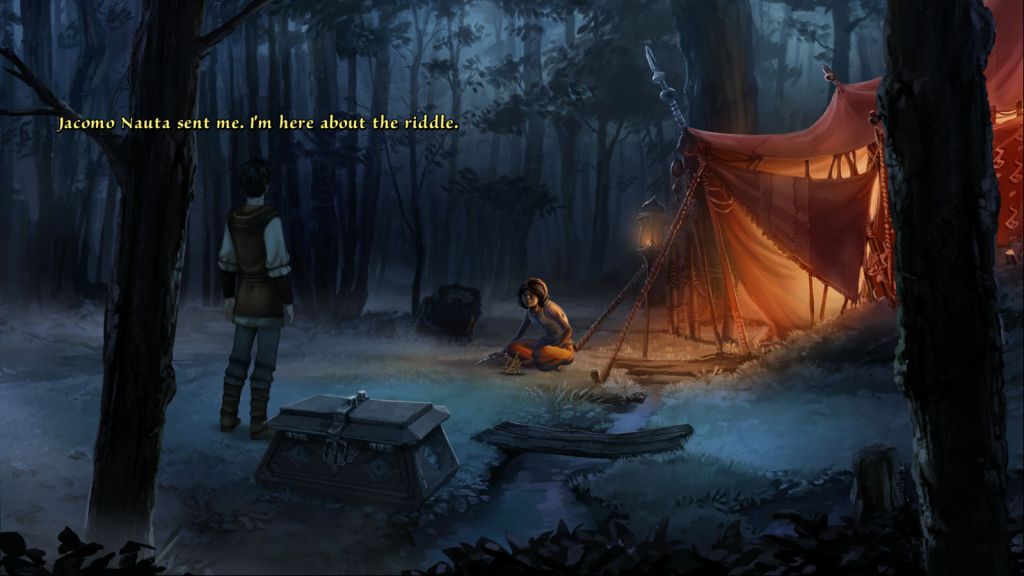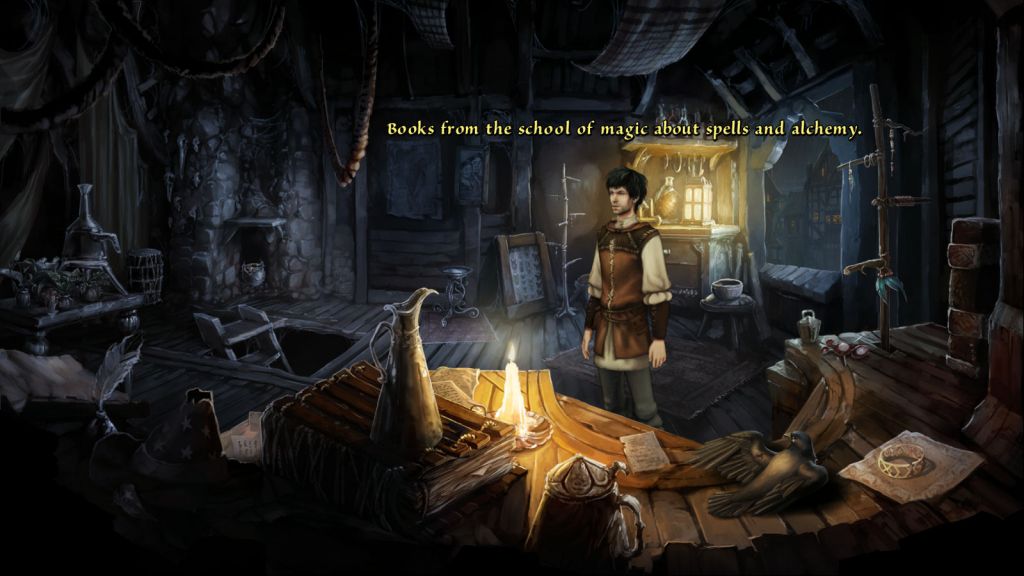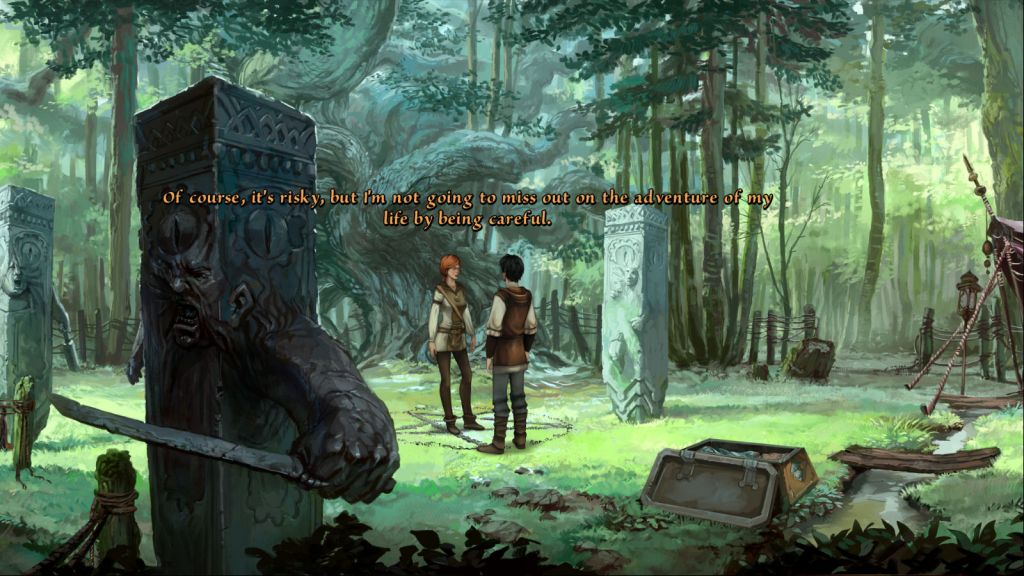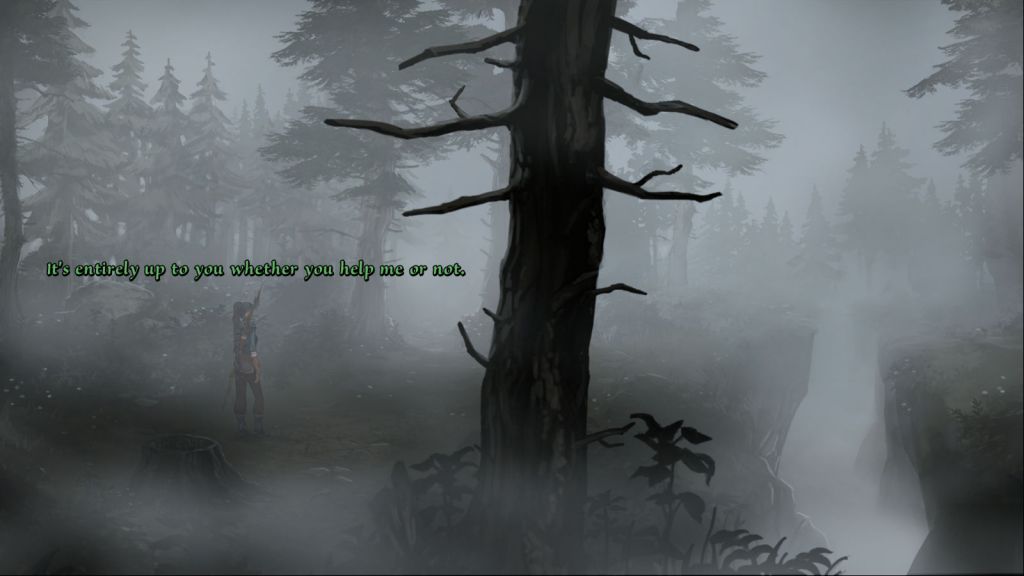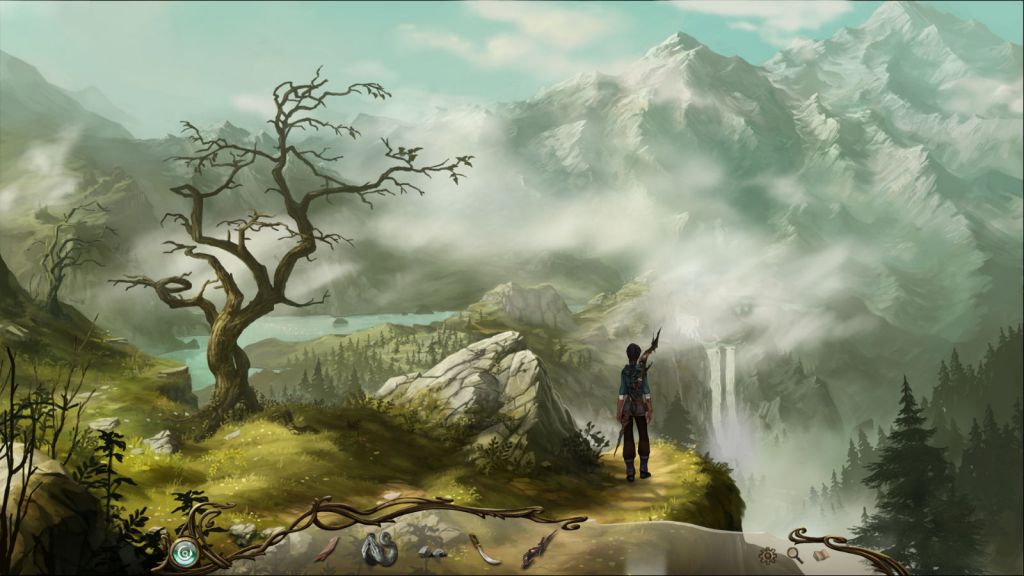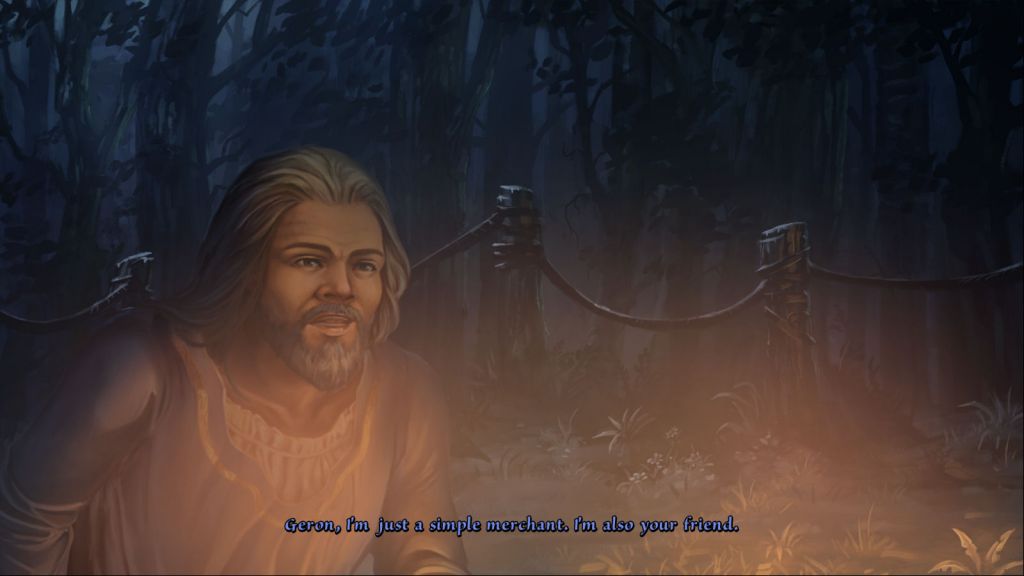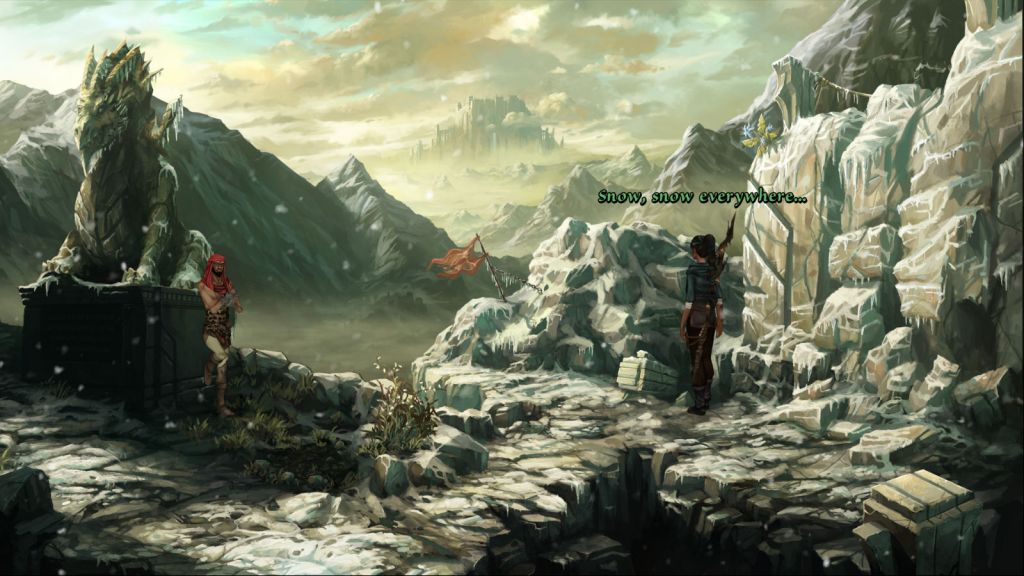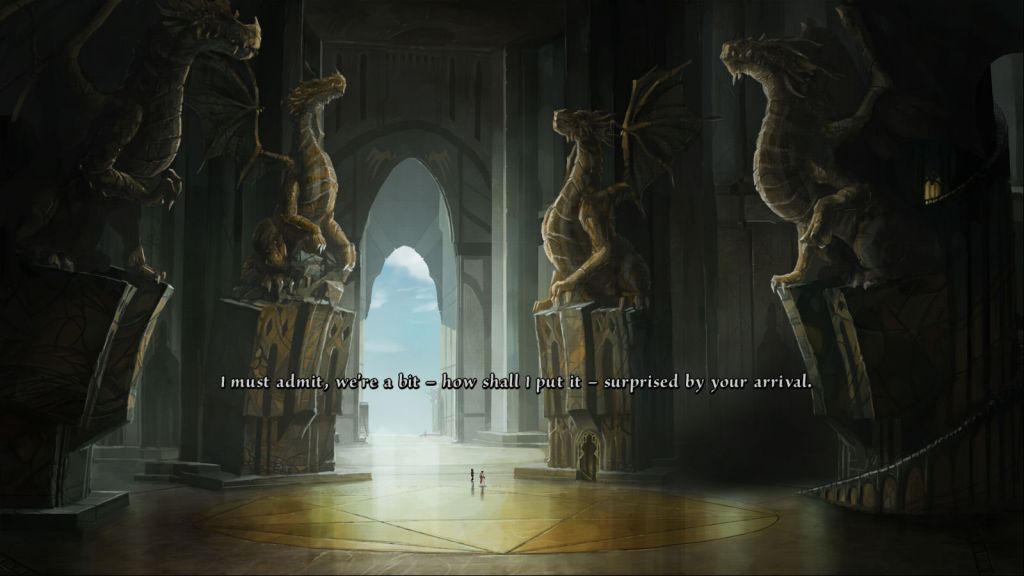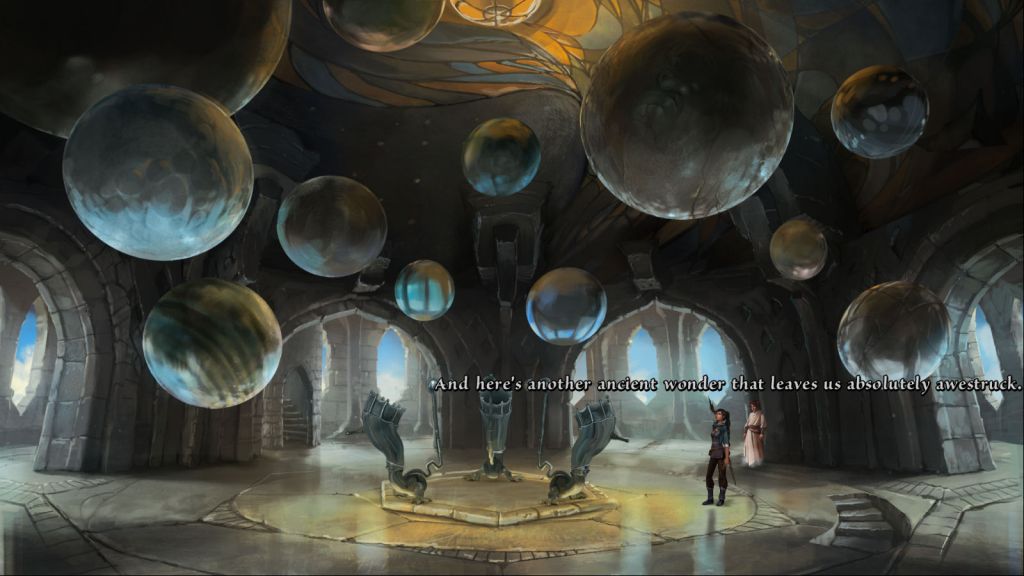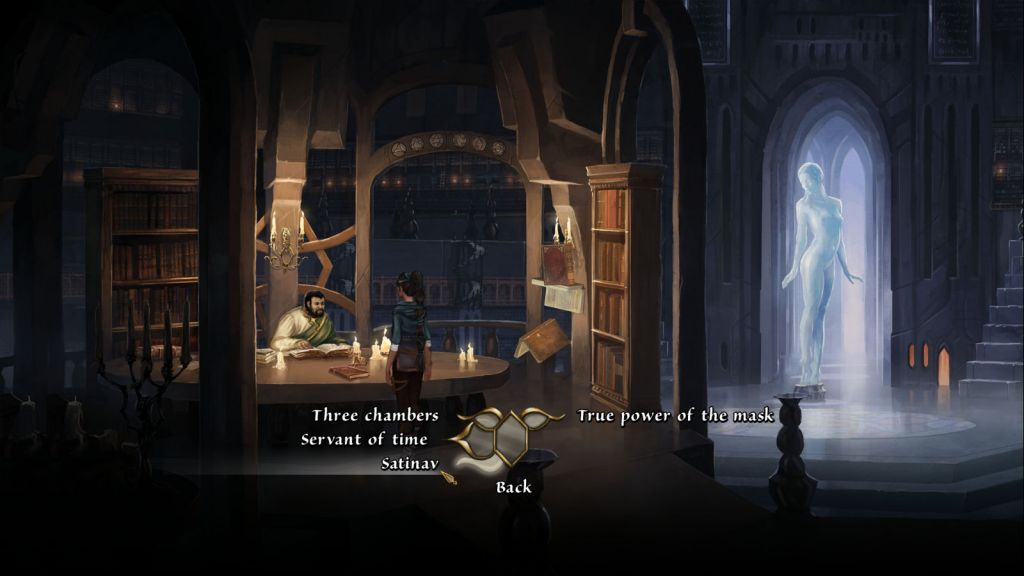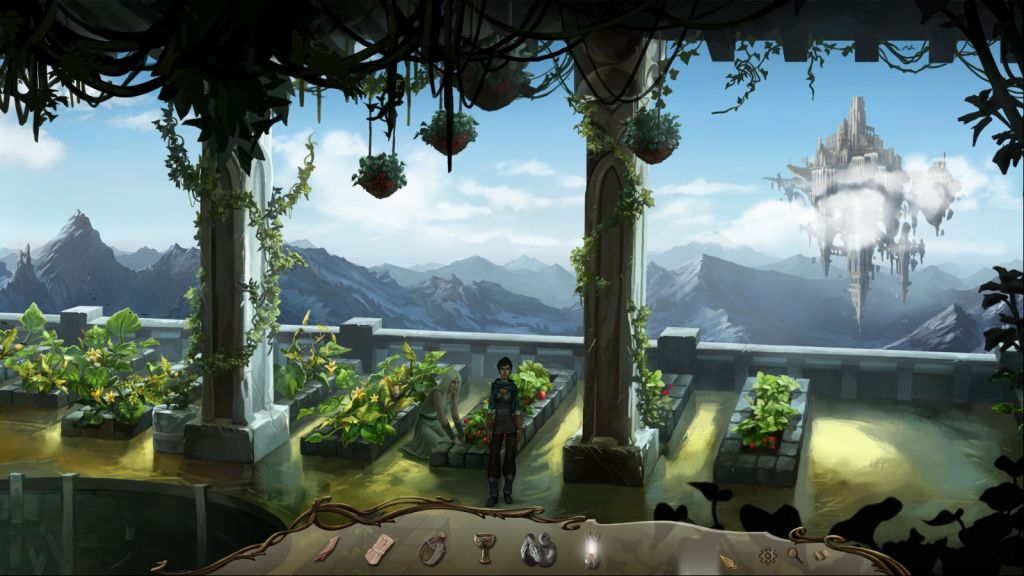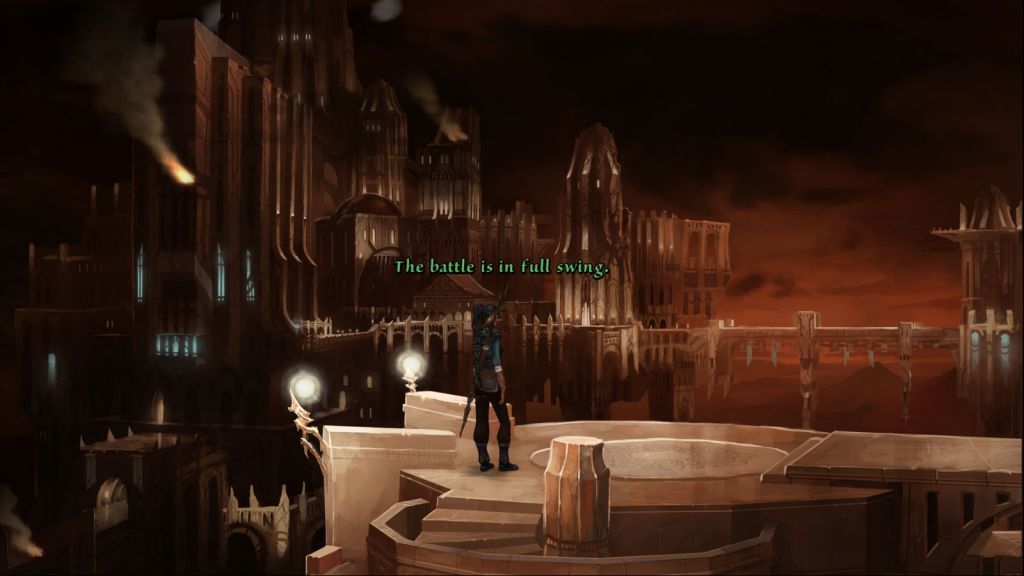Memoria
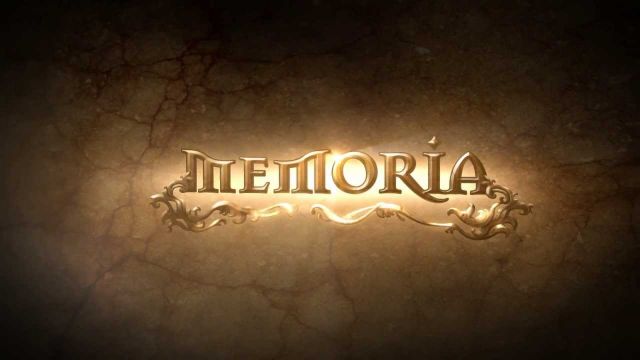
Memoria (also sometimes called The Dark Eye: Memoria) is the latest point-and-click adventure from Daedalic Entertainment, the development team behind the entertaining Deponia trilogy. Memoria is the sequel to The Dark Eye: Chains of Satinav (released last year), and it picks up right after the events of that earlier game. You control a minor magician and bird catcher named Geron, and your goal in the game is to cure your friend Nuri, who was transformed from a fairy into a raven, and who is slowly losing her memories of her fairy life. Meanwhile, you’re also introduced to a princess named Sadja, who desperately wants to be famous, and her story and Geron’s intertwine around each other before finally intersecting at the end. This despite Sadja’s adventures taking place 450 years earlier.
The control scheme for Memoria is pretty standard for a point-and-click adventure, which is good because the copy of the game I received didn’t come with a manual. You left click to move your character around and perform actions on items (like picking things up and talking to people), and you right click to examine things. If you double click on an exit, then you immediately leave through that exit, and if you press the spacebar, then you’re shown all of the hotspots for the current scene. If you’ve played a point-and-click adventure in the last twenty years, then you should be able to jump into Memoria without any problems.
The puzzles in Memoria are mostly inventory-based, where you pick up objects and then figure out how to use them. This is also pretty standard for point-and-click adventures, but Daedalic did a couple of things to make them more interesting. For starters, they added in puzzles where you can construct and deconstruct objects, which means not only do you have to combine items, you have to combine them in the right way — or combine them in one way for one puzzle and then in other ways for other puzzles. This adds to the number of possibilities for each puzzle, which reduces the chance that you’ll solve them through simple trial and error. Each character also learns a few magic spells, and the spells add an extra layer of possibilities as well. For example, early in the game when you’re controlling Sadja, she’s stuck in an underground tomb, and her “activate” spell allows her to turn the lights on and off, and some puzzles can only be completed in the dark, while others require light. For me, the puzzles were tough without being too tough. Or as mama bear would say, “Just right.”
Memoria’s engine uses 2D graphics, but each scene is colorful and detailed, and Daedalic doesn’t try to make its puzzles more difficult through obscurity. It’s easy to tell what everything is supposed to be, and you don’t have to worry about inventory objects being hidden in shadowy corners of dark rooms. Meanwhile, the voice acting also works pretty well. The actors do a nice job with their lines — actually acting them rather than just reading them — and so it’s not a chore to listen to the frequent conversations.
The only real issue I had with Memoria is the story — or, rather, that the story is a direct continuation of the events from Chains of Satinav. During Geron’s part of the adventure in particular, the previous game gets mentioned all over the place, and if you didn’t play it (like I didn’t), then you’re probably going to feel like you’re missing a lot of things, both minor and major. For example, I couldn’t tell if Geron and Nuri were supposed to be friends or more than friends, and there isn’t any sort of introduction or summary to get you caught up on what happened before. You just get dumped into the adventure without any sense of what’s going on or who some of the people are, which is confusing and irritating.
But overall, Memoria is a fun adventure. The puzzles are challenging, the characters are drawn with enough depth that you’re likely to care about what happens to them, and the world is rendered in enough detail that it’s pleasant to explore and view. Plus, the game is reasonably priced at $20, so there isn’t any reason not to try it out if you’re a fan of adventures.
Reviewed By: Steven Carter
Publisher: Daedalic Entertainment
Rating: 81%
——————————————————————————–
This review is based on a digital copy of Memoria for the PC provided by Daedalic Entertainment.
 Game Over Online
Game Over Online